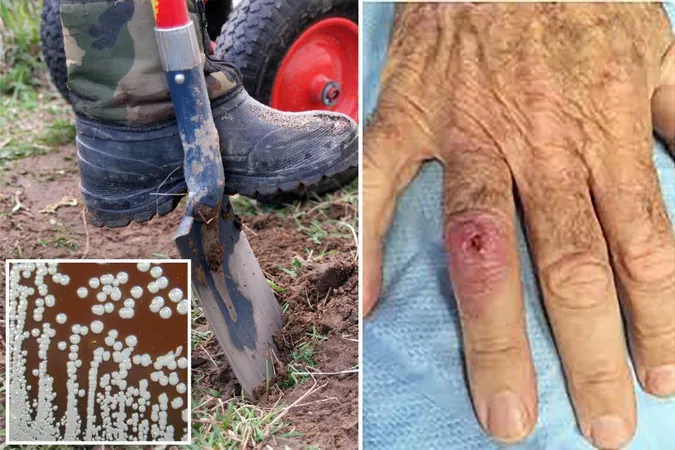
Deadly Garden Invader: Can Burkholderia Pseudomallei Spread Across the U.S.?
2024-11-02
Author: Nur
There may be a hidden threat lurking in your backyard: Burkholderia pseudomallei, a lethal bacterium that recently claimed five lives in Australia, is raising red flags among health experts in the United States.
This insidious bacterium, typically found in soil and water in tropical climates, is the causative agent of Melioidosis, a severe lung infection with a staggering mortality rate that can soar to 50% in certain cases. The recent fatalities in Australia serve as a chilling reminder of the potential dangers posed by this pathogen, which often goes unnoticed until it’s too late.
Experts express deep concern about the possibility of this bacterium spreading across the U.S., especially following natural disasters such as hurricanes and heavy storms. “The risk is highest during extreme weather events, such as monsoonal storms or tropical cyclones, where the bacteria can become aerosolized, allowing people to inhale it,” warns Bart Currie, a respected professor at the Menzies School of Health Research. He adds that even healthy individuals can suffer dire consequences if they come into contact with contaminated soil during these events.
Although most commonly observed in regions like Asia and Australia, cases of Melioidosis have already been detected in the U.S. Virgin Islands, Puerto Rico, and even as far north as Mississippi. In 2021, the CDC reported incidents in various states, including Texas, Minnesota, Kansas, and Georgia, raising alarms about its endemic nature particularly along the Gulf Coast.
The infection often remains asymptomatic, complicating diagnosis and leading to underreporting. When symptoms do manifest, they may include fever, headaches, muscle pain, confusion, and respiratory distress. If untreated, Melioidosis can escalate into severe pneumonia and sepsis, requiring extensive antimicrobial therapy to regain health.
Moreover, those with underlying conditions such as kidney or liver issues are particularly vulnerable to this “great mimicker” of diseases, as Julia Petras from the CDC describes it. Due to its tendency to imitate various illnesses, Melioidosis is frequently misdiagnosed or overlooked.
With climate change and increasing instances of extreme weather, the apprehension surrounding the potential spread of Burkholderia pseudomallei in the United States is more pertinent than ever. Health officials urge the public to remain vigilant, especially following severe weather events.
As we unveil the mysteries of this deadly bacterium, the question remains: Is your garden safe? Stay informed and protect yourself from this silent killer lurking in the soil.



 Brasil (PT)
Brasil (PT)
 Canada (EN)
Canada (EN)
 Chile (ES)
Chile (ES)
 Česko (CS)
Česko (CS)
 대한민국 (KO)
대한민국 (KO)
 España (ES)
España (ES)
 France (FR)
France (FR)
 Hong Kong (EN)
Hong Kong (EN)
 Italia (IT)
Italia (IT)
 日本 (JA)
日本 (JA)
 Magyarország (HU)
Magyarország (HU)
 Norge (NO)
Norge (NO)
 Polska (PL)
Polska (PL)
 Schweiz (DE)
Schweiz (DE)
 Singapore (EN)
Singapore (EN)
 Sverige (SV)
Sverige (SV)
 Suomi (FI)
Suomi (FI)
 Türkiye (TR)
Türkiye (TR)
 الإمارات العربية المتحدة (AR)
الإمارات العربية المتحدة (AR)